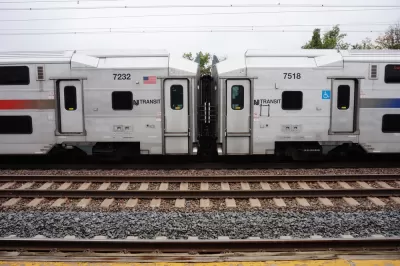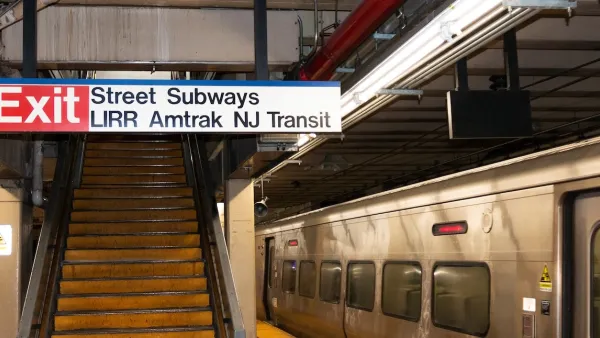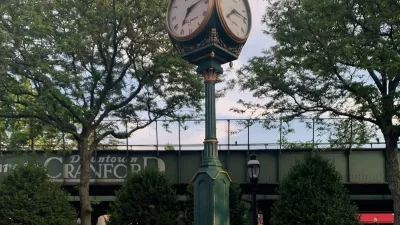The agency is facing a multitude of funding, management, and organizational challenges.

Governor Phil Murphy recently released an audit of New Jersey Transit, the state's beleaguered transit system. Patrick McGeehan reports on five major issues discussed in the report, along with recommendations for improvement.
"From one annual state budget to the next, New Jersey Transit leaders never knew where they would get enough money to run their existing service, much less make investments for the future," says McGeehan. The audit recommended creating an office to develop the agency's vision and a plan to oversee its resources.
The agency has also had trouble hiring and retaining employees, particularly engineers. The audit recommended updating and improving the hiring process.
Maintaining equipment has also been a problem, says McGeehan. The report suggested revamping the system for managing inventory and purchasing equipment.
The audit also noted that New Jersey Transit does not effectively communicate with its customers about delays and other system problems. Information is often inconsistent and not disseminated to all the staff. "The consultants suggested that the agency use social media to try to turn around negative impressions of its performance," says McGeehan.
The agency's financial situation was another concern. The audit suggested ways to increase revenue without fare increases. "Among the ideas the report discussed were finding new sources of revenue, such as the development of real estate around New Jersey Transit train stations and other properties; selling more advertising around its stations; and proposing taxes or fees on ride-hailing apps, like Uber, that could generate funds for transit," reports McGeehan.
FULL STORY: 5 Ways N.J. Transit Is Failing Commuters

Planetizen Federal Action Tracker
A weekly monitor of how Trump’s orders and actions are impacting planners and planning in America.

Maui's Vacation Rental Debate Turns Ugly
Verbal attacks, misinformation campaigns and fistfights plague a high-stakes debate to convert thousands of vacation rentals into long-term housing.

Restaurant Patios Were a Pandemic Win — Why Were They so Hard to Keep?
Social distancing requirements and changes in travel patterns prompted cities to pilot new uses for street and sidewalk space. Then it got complicated.

In California Battle of Housing vs. Environment, Housing Just Won
A new state law significantly limits the power of CEQA, an environmental review law that served as a powerful tool for blocking new development.

Boulder Eliminates Parking Minimums Citywide
Officials estimate the cost of building a single underground parking space at up to $100,000.

Orange County, Florida Adopts Largest US “Sprawl Repair” Code
The ‘Orange Code’ seeks to rectify decades of sprawl-inducing, car-oriented development.
Urban Design for Planners 1: Software Tools
This six-course series explores essential urban design concepts using open source software and equips planners with the tools they need to participate fully in the urban design process.
Planning for Universal Design
Learn the tools for implementing Universal Design in planning regulations.
Heyer Gruel & Associates PA
JM Goldson LLC
Custer County Colorado
City of Camden Redevelopment Agency
City of Astoria
Transportation Research & Education Center (TREC) at Portland State University
Jefferson Parish Government
Camden Redevelopment Agency
City of Claremont




























